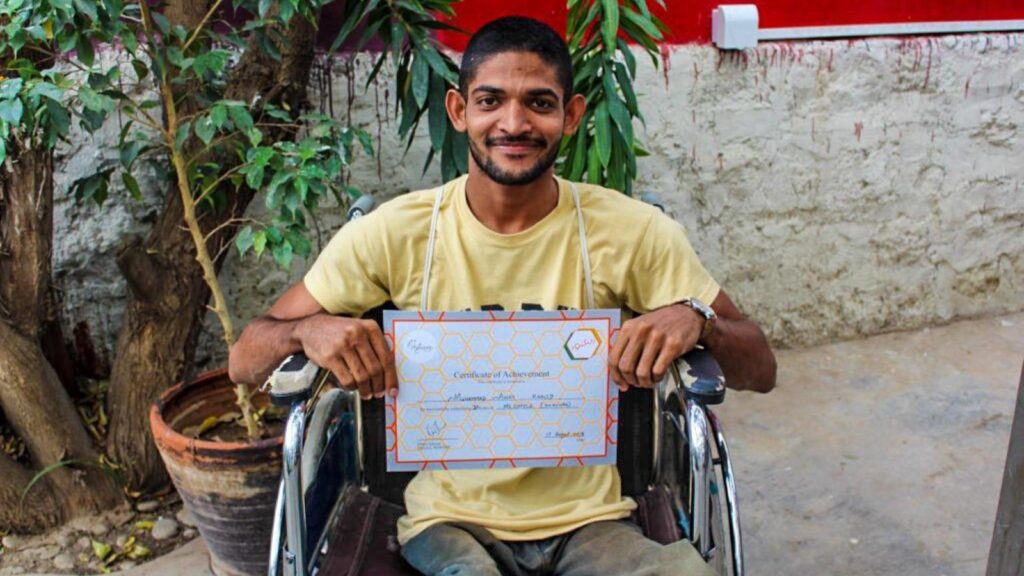Disability benefits are intended to help those who are unable to work and are deemed disabled under the policy of an insurance provider. However, the policies are quite complex for the average person to understand, especially when it comes to working while receiving disability benefits.
You can quit your job while receiving benefits, and it will have no effect on your disability payments. However, if you were to take up a new job, then the insurance provider may no longer consider you disabled.
In this article, we will discuss the other things you must remember when navigating employment as a disability benefits recipient.
Can I Quit My Job While On Long Term Disability?
At any moment, you are allowed to terminate your employment with the company you work for. On the other hand, you should think twice about starting a new job before getting the all-clear from your doctor if you’re currently receiving long-term disability.
Once an individual becomes eligible for long-term disability benefits, they will typically maintain their entitlement to those benefits even if they quit their job, provided they continue to meet the policy’s definition of “disabled” and the policy’s coverage limits (typically, a policy’s coverage ends when the policyholder reaches age 65.
When you start working again, you are no longer considered “disabled” and hence no longer eligible for long-term disability benefits under your current insurance plan. Even though it sounds like you won’t be able to return to your current job once your doctor has given you the all-clear, the future of your new job is uncertain.
You will not be able to get back disability payments or requalification based on your old company’s policies if you terminate your benefits in order to begin this new job and then experience many of the same problems or aren’t entirely recovered and ready to focus on the challenges that the new position offers.
It’s not easy to answer the question of can you quit your job while on disability. There are no legal impediments to you leaving your previous position and deciding to discontinue your disability payments to take another job; nevertheless, there are several practical problems you should think about before making such a decision.
Before you take up a new job and give up your disability benefits, you should discuss your plans to return to work with your primary care physician.
It is possible that you are not yet able to handle the physical demands of your job. In the event that the condition becomes more severe or you experience a relapse, you run the risk of being ineligible for the benefits you rely on for financial support.
Can I Quit My Job While on Short Term Disability?
Quitting while on short term disability should not impact your ability to receive short term disability benefits, however it would be best to stay employed until your employer terminates you so that you can continue to receive medical insurance, and treat with a doctor as required by your policy, so that you are able to transition to long term disability.
Additionally, many people wonder, “Do I have to pay back short-term disability if I quit?” The answer is no. Most policies are based on your employment status at the time of disability onset to determine your eligibility, along with other criteria.
Should I Quit My Job Before Applying For Disability?
In the event that you are unable to work as a result of a condition, the Social Security Administration (SSA) may be able to provide you with disability benefits to assist you in meeting your day-to-day financial obligations, such as paying for medical care and other essentials of life.
You might believe that in order to be eligible for disability benefits, you have to give up your job, but this is not actually the case.
If you quit your job while you are in the process of applying for Social Security Disability Insurance (SSDI), you will need to demonstrate to the Social Security Administration that the choice to quit was made because of your disability and not in the hopes that you might reduce your income and become eligible for SSDI benefits.

Can I Work While on Disability?
You are allowed to work part time if you are receiving SSDI benefits, but only within certain parameters.
If you are involved in what the Social Security Administration refers to as “substantial gainful activity,” then your benefits will be terminated. In 2023, a salary of $1,470 per month (or $2,460 per month if blind) will be considered “substantial gainful activity” (SGA). If your income is higher than those limits, you will not be eligible for Social Security Disability benefits.
The only exception to this rule is if you are participating in one of Social Security’s “work incentives,” which are programs and trial periods designed to assist SSDI recipients in returning to the workforce without forfeiting their benefits.
In addition, beneficiaries of Supplemental Security Income (SSI), another program administered by Social Security that provides payments to those with disabilities, are eligible to participate in some work incentive programs.
The most important of these work programs is called the “Ticket to Work” program. It helps people who are currently receiving Social Security Disability Insurance or Supplemental Security Income become self-sufficient by providing them with job training, work experiences, and other assistance.
You can keep receiving disability payments while you try working for an employer who has signed up for Ticket to Work because, like other work incentives, it momentarily lifts the SGA earnings limits.
Those who participate in the program and then find gainful employment lose their eligibility for SSDI benefits. On the other hand, if your health worsens and you have to quit working, you will continue to receive benefits.
Beneficiaries of the Supplemental Security Income program may also participate in a work trial lasting up to nine months. Spread out over a period of five years; the trial months allow you to receive the most benefit, regardless of your income.

Am I Eligible for SSDI If I Have a Low Income?
In determining whether or not you are eligible for benefits, the Social Security Administration takes into account both your income and the nature of your employment.
The Social Security Administration may rule that you are able to work even if your earnings are below the threshold if, for example, you hold a voluntary position that demands extensive physical exertion.
On the other hand, the SSA may rule that you are entitled to benefits rather than employment if you earn a high salary but do so at a company that provides you with extraordinary accommodations and assistance.
If you receive Supplemental Security Income, you should know that all but eight states also offer state supplements that increase your monthly payout.
Final Word
In conclusion, it’s safe to say that working or quitting your job while applying for or receiving disability benefits can be tricky. It’s important to do your research and possibly consult the Social Security Administration, a disability lawyer, or an advocate to help you navigate employment as a disability benefits recipient.





